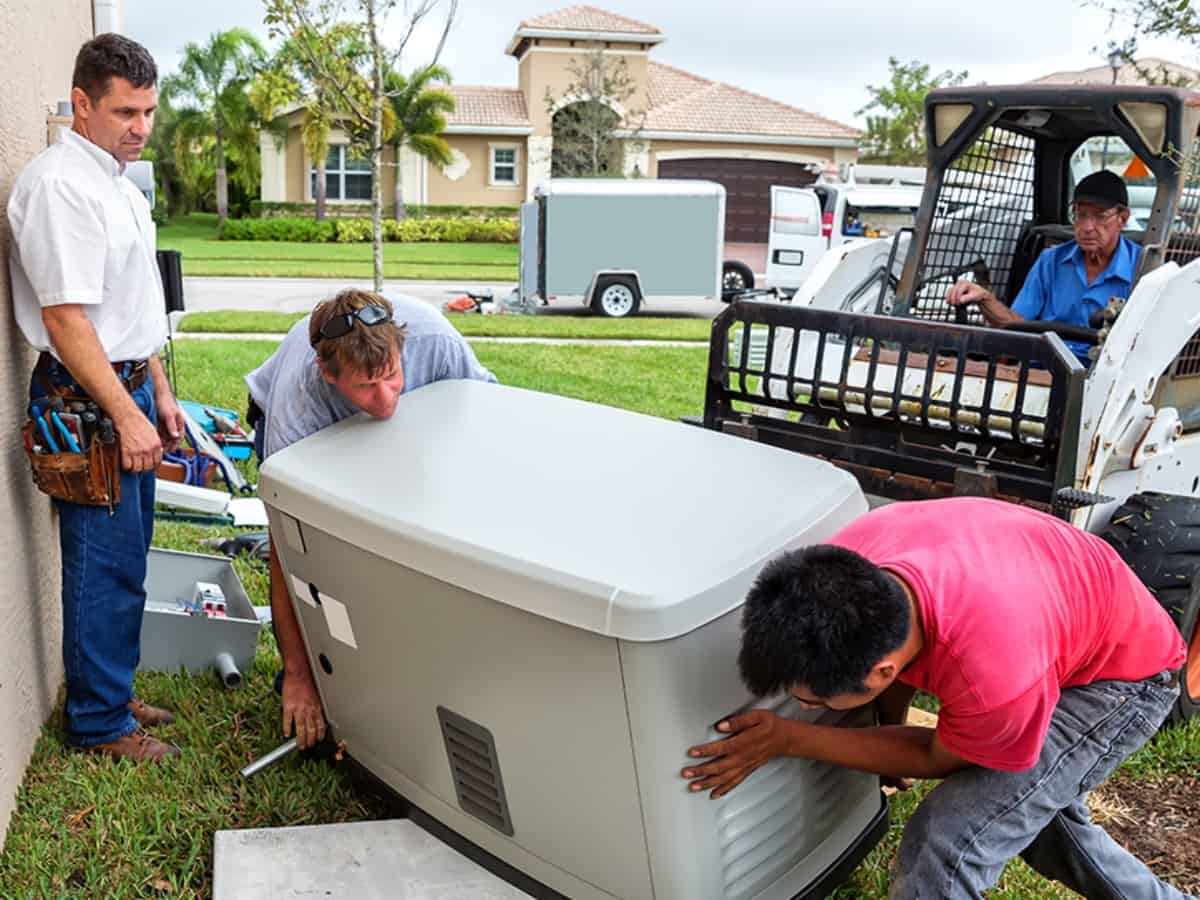With the widespread power outages, it’s more important than ever to invest in an emergency generator for home. According to a 2021 study, electricity customers in the United States experienced slightly over eight hours of power outages in 2020. This figure was the highest recorded since the start of gathering and analyzing electricity reliability data in 2013. These generators are a great way to keep your family safe and comfortable in a power outage. They are also excellent for keeping your electronics and appliances running without disruptions. So how do you know which one is right for you with so many emergency generators in the market today?
This article focuses on what to look for when picking the best emergency generator for your home.
What is an Emergency Generator?
An emergency generator is a device that you can use to provide power in the event of an outage or natural disaster. The generator connects to the home’s electrical system for an adequate power supply. In addition, emergency generators often come with automatic transfer switches (ATS). The ATS helps the generator kick on automatically when there is a blackout and switch off when the power is back.
Emergency generators are also known as standby generators. These generators can power your whole home providing power to your HVAC systems, lighting, security cameras, and other household appliances. A qualified technician permanently installs the generator outdoors in a household or commercial building.
People also consider a portable generator an emergency generator, although it doesn’t fit the U.S. Environmental Protection Agency (EPA) description. A portable generator is a device that produces electricity through diesel, propane, or natural gas. Like standby generators, you can use them for emergency backup power and recreational purposes such as camping trips and outdoor construction projects.
The main difference is that standby generators start automatically after a power outage, while portable generators are switched on manually. Standby generators are also not portable.
Let’s delve into what to look for in standby generators for home power backup.
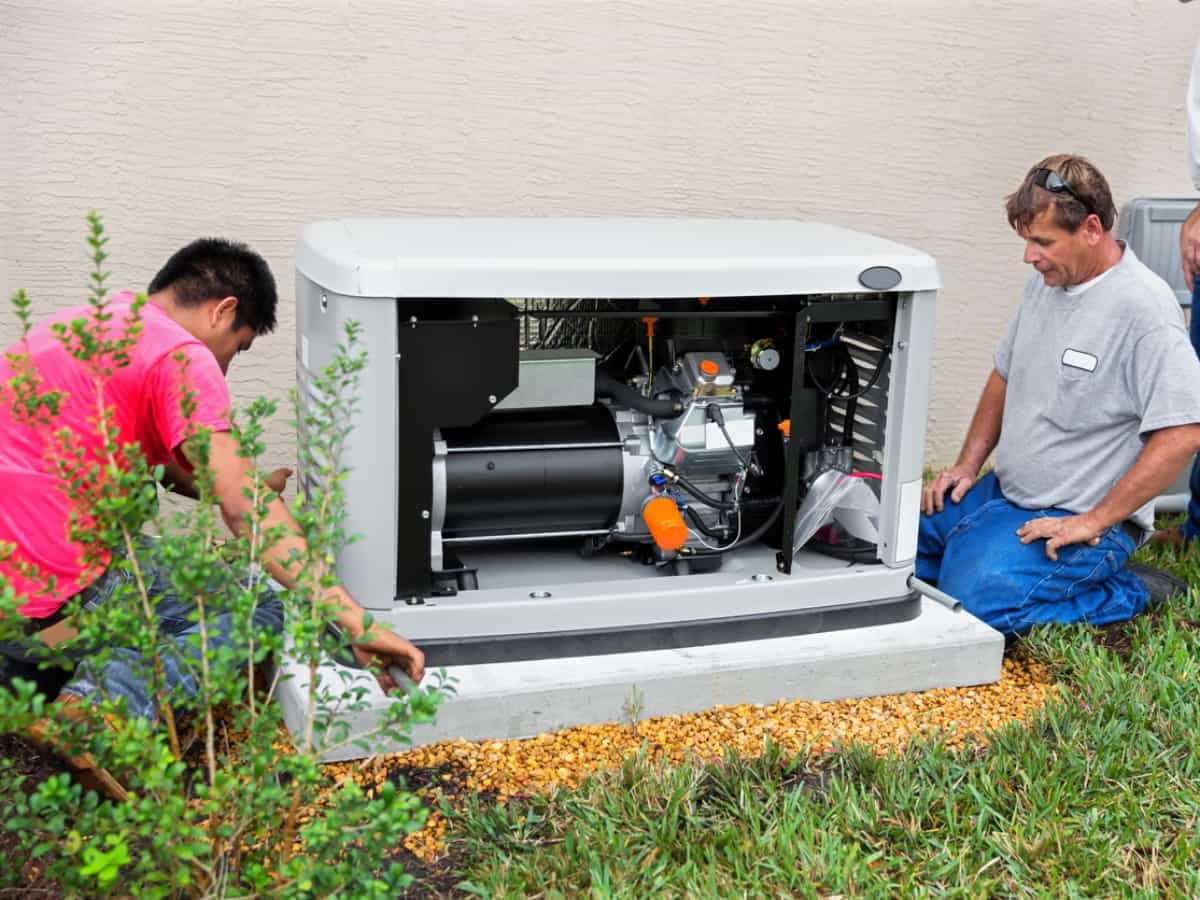
What to Look for in an Emergency Generator for Home
When it comes to an emergency generator for home, the most important thing is to choose one that meets your power needs. Below are some important things to consider before selecting the correct fit for your home:
How Much Power It Can Provide
The first thing is to think of what you want to be powered by the emergency generator. It’s essential to have enough power to run all of your appliances, plus any extra devices you might need during an emergency. So, when choosing a generator, it’s good to think of the specific purpose it will serve in your home.
For example, a model designed for charging cell phones and laptops only cannot power your HVAC unit as it needs a lot of power. Knowing the amount of energy you need in the house is essential to keep your home running efficiently with no disruptions.
What Kind of Fuel Does It Use?
It’s good to consider the type of fuel that the generator uses. An emergency generator runs on natural gas, diesel, propane, or gasoline. The most commonly used are natural gas and diesel.
Consider what is available near you, mainly if you live in the countryside where you must drive for miles before finding fuel.
The Size and Weight
Smaller generators are easier to transport, but they may not have enough power output for large appliances. Different models come in different sizes and weights, so it’s good to choose one that will meet your power needs.
How Long Does It Take for the Generator to Start?
The emergency generator should kick on almost immediately after a power outage. The average time for the generator to kick in is 10-15 seconds.
The Warranty Duration?
Generally, emergency generators come with a warranty whose duration depends on your chosen model. Most manufacturers offer an average of a 5-year warranty on parts; the engine and alternators. However, this type of generator is expensive, so a five-year warranty or more is reasonable. So when choosing a generator, look for one with a high warranty period.
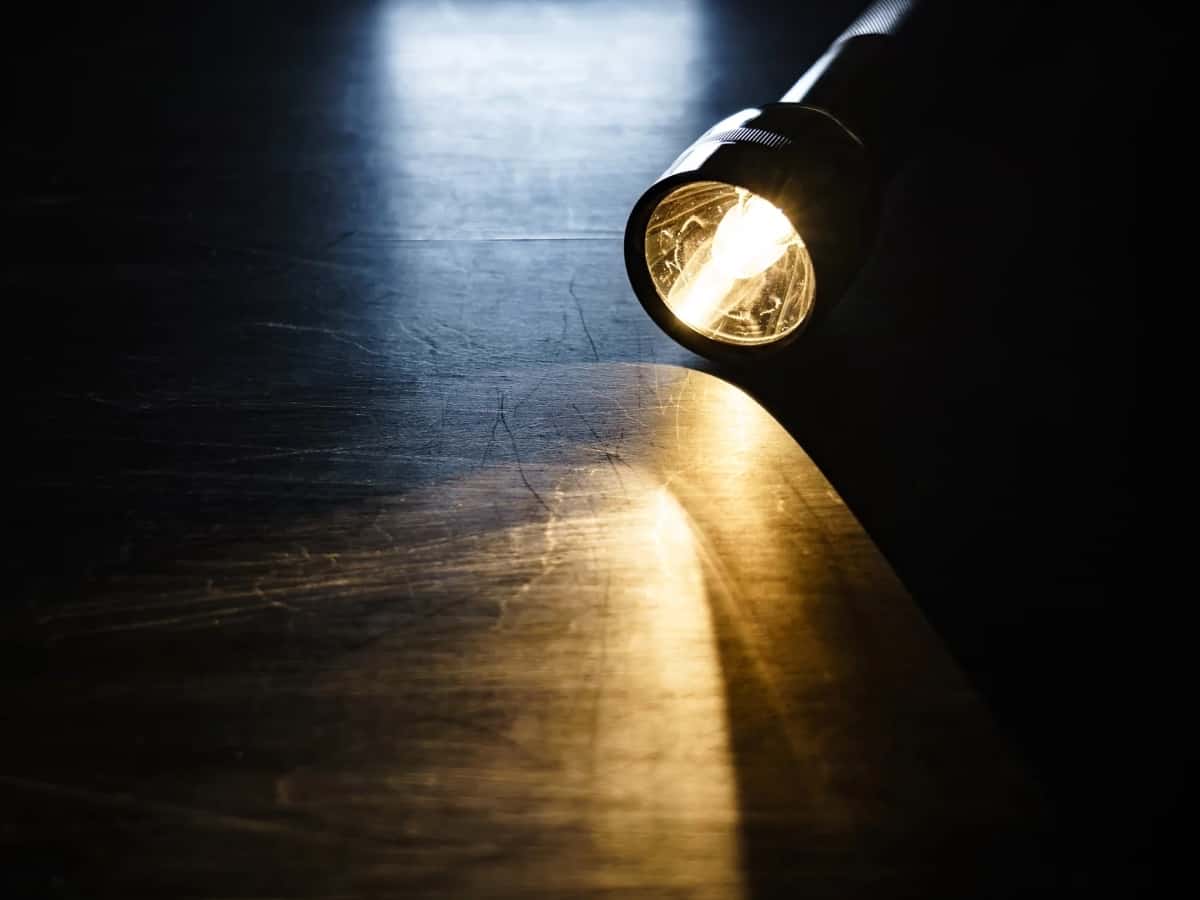
Other Factors to Consider
Below are other important considerations when buying an emergency generator.
Low Oil Shut-Off
Low oil shut-off is a safety feature of your emergency generator. This means that if the oil level in the generator gets too low, it will stop running. The feature helps prevent damage to the engine from running without enough oil.
Noise Level
You wouldn’t want a generator that will wake up the whole neighborhood when there’s a power outage. Right? This is why it’s essential to check the noise level before picking an emergency generator for your home.
The noise level of a generator depends on what kind of generator you have. It’s good to note that diesel-powered generators are the noisiest, but sound attenuators reduce the noise. Generator noise level is measured in decibel levels; the quietest can offer less than 65 dB, and the loudest is over 90 dB.
Climate
When choosing an emergency generator, it’s essential to consider the climate in your area. For example, some models are perfect for hot weather. So you’ll want to ensure the generator can handle that kind of weather.
What Are the Benefits of Having an Emergency Generator for Home?
Emergency generators are an excellent choice for home backup power since they don’t limit the time you can run them. Instead, you only add fuel, and you’re protected throughout the period. Here are some benefits associated with standby generators.
- You can use it for lights, air conditioning, and other appliances in your home that run on electricity. So there’s no worrying about being uncomfortable during an emergency.
- It’s possible to keep medical equipment running if you have a sick person in your home.
- There will be no food wastage from your fridge or freezer if the power goes out for a long time.
- You’ll always have peace of mind knowing you’ll never worry about power outages.
- An emergency generator runs for more extended periods compared to battery backups.
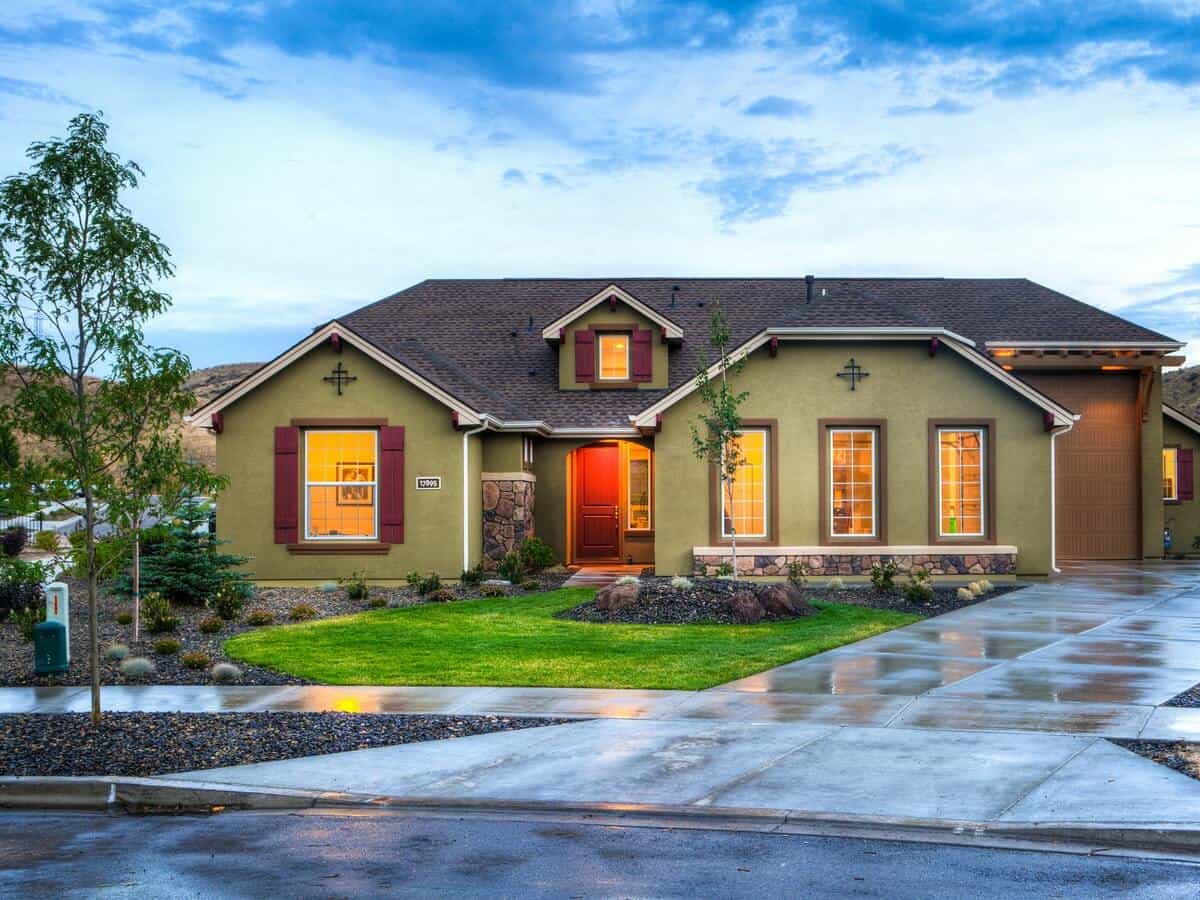
The Best Emergency Generators for Home
The market is full of home generators; therefore, we have chosen the best that you can consider when making your selection.
1. Champion Home Standby Generator with Outdoor Switch (100-Amp)
The Champion Home Standby comes with an automated transfer switch that has 16 circuits. It starts automatically in case of a power outage, and when power is restored, it goes back to standby mode.
In addition, it has a 24-volt starting system and provides 12.5kW continuous power on propane and 11kw when running on natural gas. To avoid refueling, you can connect this generator to your fuel sources.
It also comes with a composite all-weather mountain pad and steel enclosure for maximum protection.
The generator produces 52.1 amps at 240 volts on propane and 45.8 amps at 240 volts on natural gas. It comes with a sound-dampening lining to reduce noise.
Specifications
- Model Number: 100179
- Dimensions: 49 x 28 x 28 in.
- Rated Watts: 12.5kW LP/11kW NG
- Rated Amps: 52 LP/45.8 NG
- Voltage: 120/240V Single Phase
- Operating Temp: -22° F to 104°
- Engine Size: 717cc
- Switch Enclosure: NEMA 3R
- Weight: 425.2 Pounds
- Warranty: 10 Years
- Price: $4,199
Pros
- It comes with a NEMA 3R transfer switch.
- Quiet operation
- Warranty is double the time most generators offer
Cons
- The battery for the 24-Volt Starting System is not included.
2. Briggs & Stratton PowerProtect Standby Generator
Briggs & Stratton is an air-cooled generator with a high-grade Vanguard Power for reliable power output. It comes with a stepper motor within the primary motor for effective performance. In addition, it has a sound attenuator to control the noise and offer the quietness you need in your home.
It also has a durable aluminum enclosure that can withstand strong winds of up to 186 mph. The generator uses liquid propane and natural gas fuels.
Specifications
- Model Number: 040658
- Dimensions: 46.5 x 26.5 x 28.4 in.
- Rated Watts: 26kW LP/24kW NG
- Rated Amps: 103 LP/100 NG
- Voltage: 120/240V
- Weight: 540 pounds
- Warranty: 6 Years
- Price: $6,119
Pros
- 70% quieter during the weekly self-test mode
- It comes with a sleek design and is small considering its capacity.
- Best value for money
Cons
- It does not include a transfer switch.
3. Generac Protector QS 22 kW Standby Generator, Model RG022
Generac is among the best of North America’s largest suppliers who manufacture powerful generators. The Generac Protector QS 22 kW uses TRUE POWER™ technology for smooth operations and best-in-class power quality. This generator features a multilingual LCD screen for intuitive control. In addition, it comes with a USB flash capability, voltage adjustment, smart battery charging, and backlit membrane pad-style buttons.
It runs on natural gas or propane. You can monitor your generator with a cellular monitoring system from anywhere.
Specifications
- Model Number: RG022
- Dimensions: 62.2 x 30.6 x 38.6 inches
- Rated Watts: 22kW LP/22kW NG
- Rated Amps: 92 LP/92 NG
- Voltage: 120/240V
- Weight: 905 Pounds
- Warranty: 5 Years
- Price: $10,997
Pros
- Perfect for hot weather
- It has an LCD monitor and a cellular remote monitoring system.
Cons
- A transfer switch is not included.
- It’s expensive
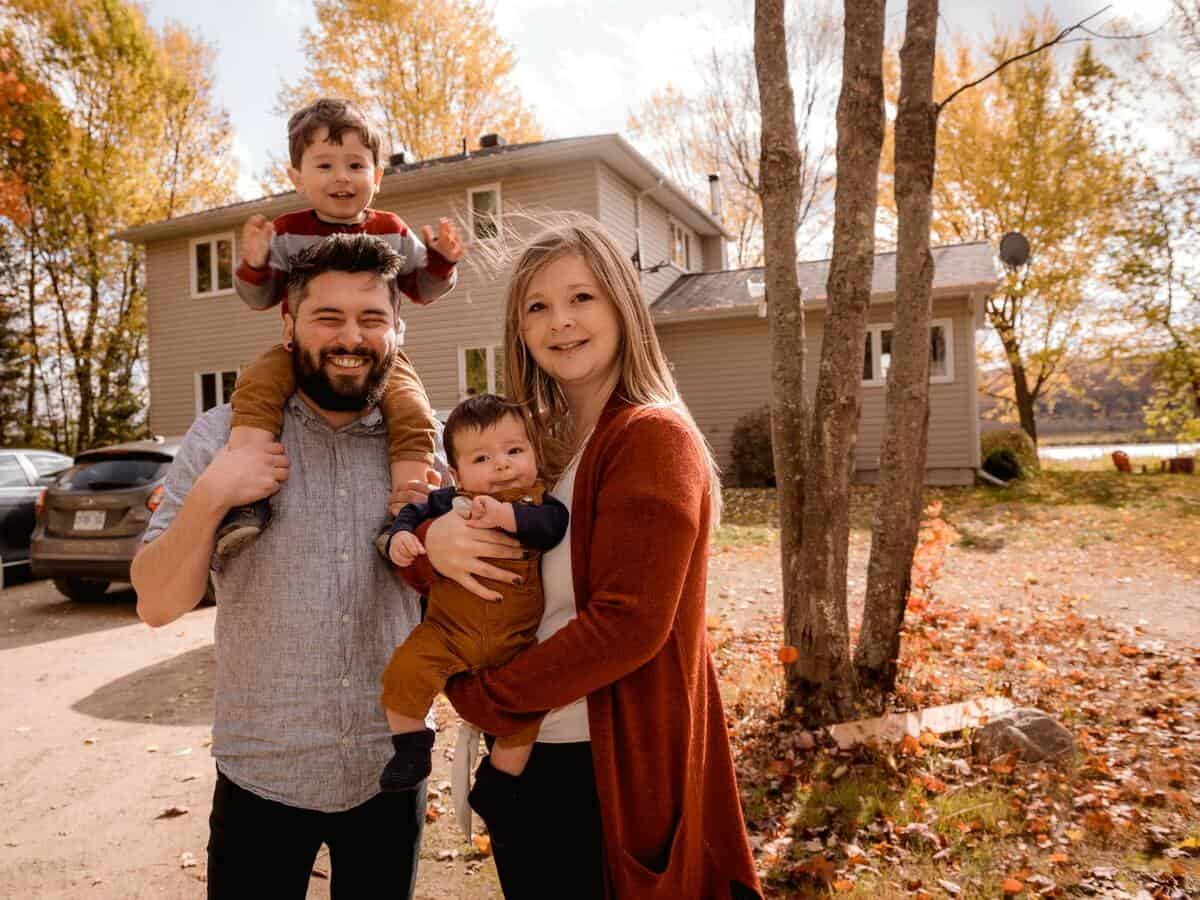
Power Your Home with ONIT Home
There are key things you’ll want to keep an eye out for when looking for an emergency generator for home. First, look for a generator to meet your energy needs with a perfect warranty. You can contact ONIT Home to help you figure out the best generator. We can also help install generators and other energy-related equipment such as solar panels. Visit our website or call us at 1-833-433-0331 to speak to our dedicated team. For all your energy needs, we’re ONIT!



